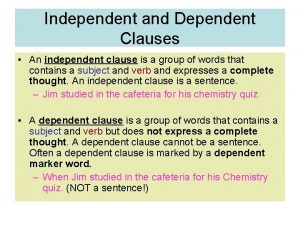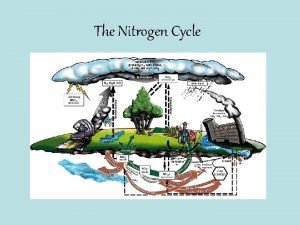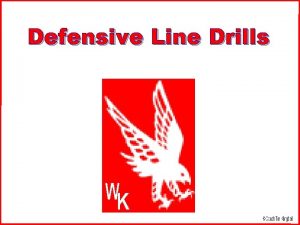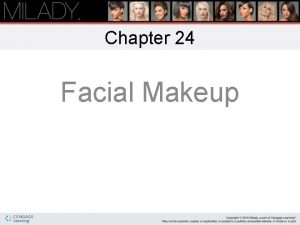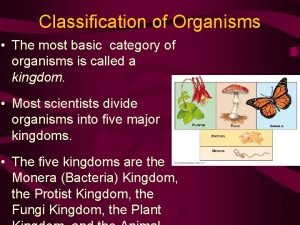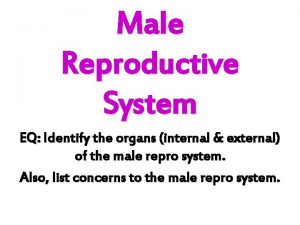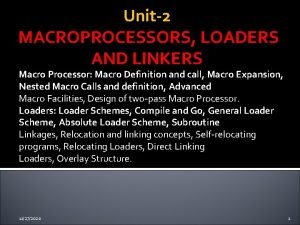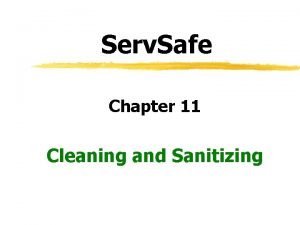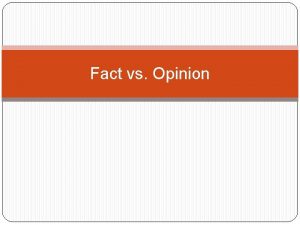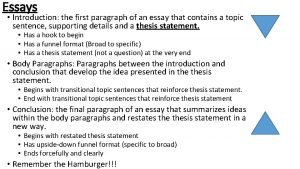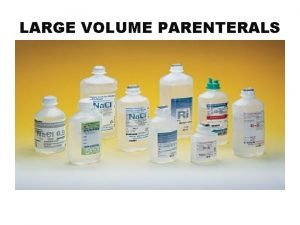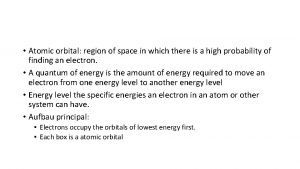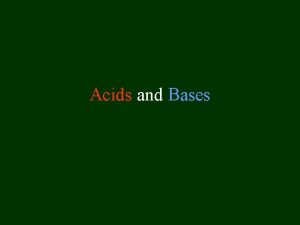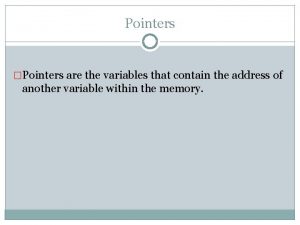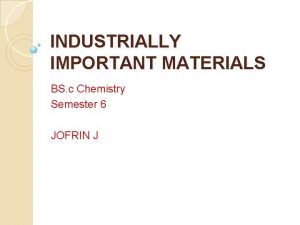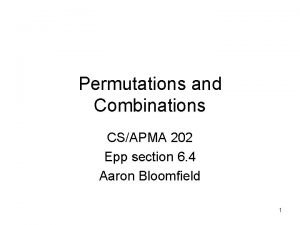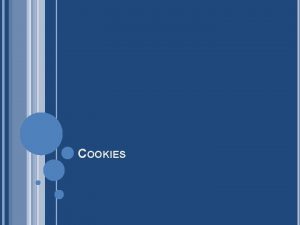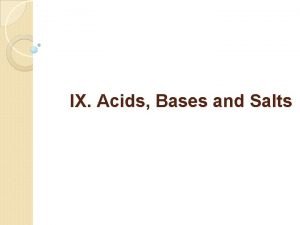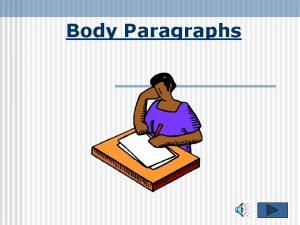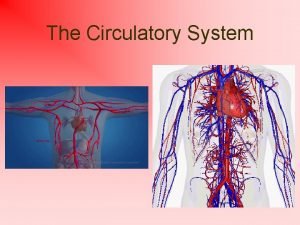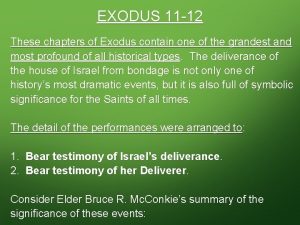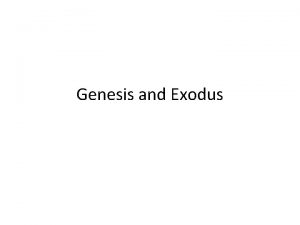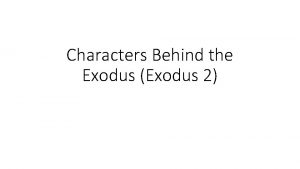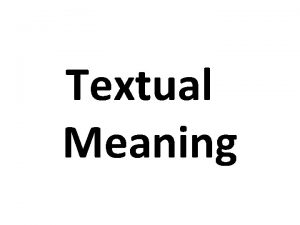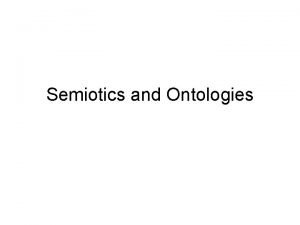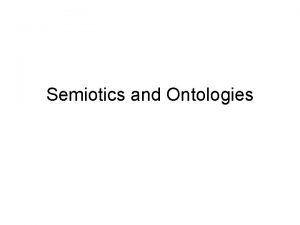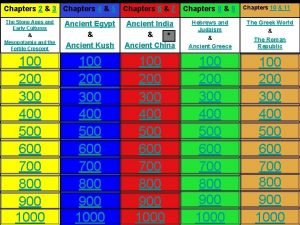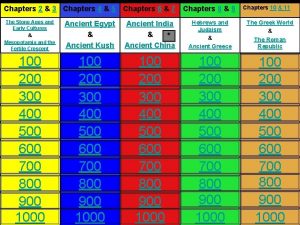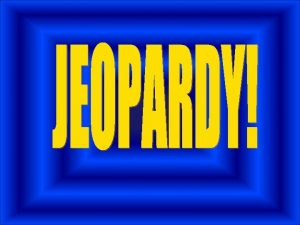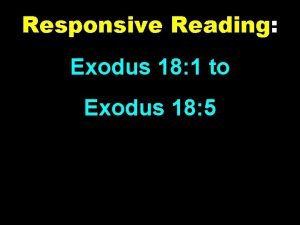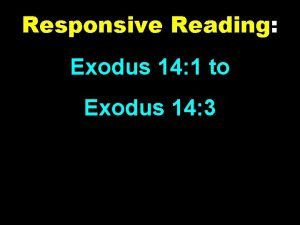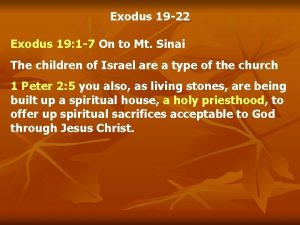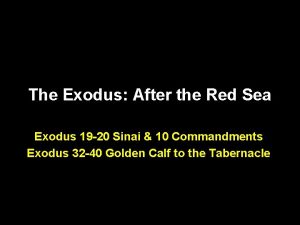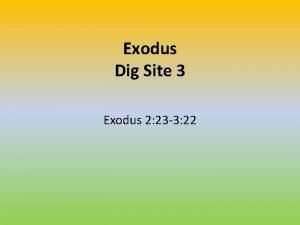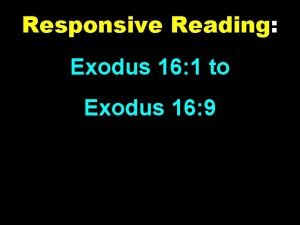EXODUS 11 12 These chapters of Exodus contain






















- Slides: 22

EXODUS 11 -12 These chapters of Exodus contain one of the grandest and most profound of all historical types. The deliverance of the house of Israel from bondage is not only one of history’s most dramatic events, but it is also full of symbolic significance for the Saints of all times. The detail of the performances were arranged to: 1. Bear testimony of Israel’s deliverance. 2. Bear testimony of her Deliverer. Consider Elder Bruce R. Mc. Conkie’s summary of the significance of these events:

At the time appointed for their deliverance from Egyptian bondage, the Lord commanded each family in Israel to sacrifice a lamb, to sprinkle its blood on their doorposts, and then to eat unleavened bread for seven more days – all to symbolize the fact that the destroying angel would pass over the Israelites as he went forth slaying the firstborn in the families of all the Egyptians; and also to show that in haste, Israel should go forth from slavery to freedom. 1. Your lamb shall be without blemish, a male of the first year, signifying that the Lamb of God as the Paschal Lamb (a lamb that would be eaten at the Passover meal), would be slain for the sins of the world.

2. They were to take the blood of the lamb and sprinkle it upon the doorposts of their houses. Signifying that the blood of Christ, which should fall as drops in Gethsemane and flow in a stream from a pierced side as he hung on the cross, would cleanse and save the faithful. The angel of death passed by the families of Israel because of their faith. Even so the Angel of Life will give eternal life to all those who rely on the blood of the Lamb. 3. Neither shall ye break a bone thereof. Meaning, that though they broke the two thieves legs to induce death, they did not break the Savior’s (John 19: 31 -36). 4. As to the eating the flesh of the sacrificial lamb, no uncircumcised person shall eat thereof. Signifying that the blessings of the gospel are reserved for those who come into the fold of the gospel.

5. As the Lord smote all the firstborn in the land of Egypt, even so should the Father destroy the worldly people that believed not the words delivered by prophets at the last day. 6. On the first and seventh days of the Feast of Unleavened Bread, the Israelites were commanded to hold holy convocations in which no work might be done except the preparation of their food. and We attend sacrament meetings to be built up in faith in testimony.

Exodus 11: 2 “borrow of his neighbor” This fulfilled the promise that the children of Israel would come out, with great substance given to Abraham (Genesis 15: 14). “Borrow” in Hebrew signifies to ask or demand. God commanded them to ask the Israelites for recompense for their past services. The Egyptians who were less hard-hearted then Pharaoh and impressed with Moses responded. Probably some of these spoils were later used in the construction of the golden calf and in the building of the tabernacle.

And there can be no doubt that while their heaviest oppression lasted, they were permitted to accumulate no kind of property, as all their gains went to their oppressors. Even charity, was no more than a very partial recompense for the long and painful services which we may six hundred thousand Israelites had rendered Egypt, during a considerable number of years (Bible Commentary, 1: 307). Exodus 11: 5 “All people and

Exodus 11: 6 -7 The Lord doth put a difference between the Egyptians and Israel! What might that mean? He won’t kill them if they participate in the Passover meal.

Exodus 12: 2 “New Calendar” So significant was the event about to take place that the Lord commanded Israel to use this event as the beginning of their calendar. Exodus 12: 3, 6 house” “Lamb in the The unblemished, male lamb, would actually live in the house for several days before the

Exodus 12: 5 It was estimated that 260, 000 lambs were killed for the feast of the Passover. Exodus 12: 7 “Atonement” “Blood”

Exodus 12: 7 Post” “Door Events of our daily lives! “Mezuzah” On the doorposts of traditional Jewish homes, you will find a small case. This case is known as a mezuzah (doorpost), because it is placed upon the doorposts of the house.

THE MEZUZAH IS AFFIXED ON THE RIGHT-HAND SIDE OF THE DOOR AS YOU ENTER THE ROOM. IT SHOULD BE PLACED AT A SLIGHT ANGLE, WITH THE TOP OF THE MEZUZAH POINTING TOWARD THE INSIDE OF THE ROOM AND THE BOTTOM POINTING TOWARD THE OUTSIDE. THE PROPER PLACE FOR THE MEZUZAH IS AT THE BOTTOM OF THE TOP THIRD OF THE DOORWAY. THERE ARE TWO PARTS TO A MEZUZAH, THE SCROLL AND THE SCRIPTURE ON IT.

The mezuzah is not, as some suppose, a good luck charm, nor does it have any connection with the lamb’s blood placed on the doorposts in Egypt. Rather, it is a constant reminder of God’s presence and God’s commandments. It is derived from Deuteronomy 6 & 9 that God commands us to keep his words constantly in our minds and in our hearts. Jews demonstrate this by writing them on the doorposts. Every time you pass through a door with a mezuzah on it, you are reminded of the commandments contained within the mezuzah and of God who commanded you to observe them.

Exodus 12: 8 “Roast with Fire” It was roasted in order that it might be placed upon the table undivided and essentially unchanged (not a bone was to be broken). Through the unity and integrity of the lamb given them to eat, the participants were to be joined into an undivided unity and fellowship with the Lord, who had provided them with the meal. Exodus 12: 13 “Pass over you” Spiritual death!

Exodus 12: 14 Ye shall keep it a feast by an ordinance forever! The Feast of the Passover was fulfilled in that form in the crucifixion of Jesus Christ. The law was changed by the Savior himself, and from that time forth the law of the sacrament was instituted. We now observe the Sacrament. “The word forever used in the Old Testament does not necessarily mean to the end of time but to the end of a period” (Smith, Answers to Gospel Questions, 5: 15354).

Exodus 12: 15 -19 bread” “unleavened Leaven or yeast was seen anciently as a symbol of corruption because it spoiled so easily. For the Israelites, eating the unleavened bread (for seven days) symbolized that they were partaking of the bread which had no corruption or impurity, namely, the Bread of Life, who is Jesus Christ (John 6: 35). The careful purging of the household of all leaven (Exodus 12: 19, for seven days plus) was a beautiful symbol of putting away all un-cleanliness from the family. Make it in ten minutes, then get out fast, if it is the will

Exodus 12: 37 -38 Men” “ 600, 000 The figure given here of six hundred thousand men agrees approximately with the official census of the Israelites given in Numbers 1: 45 -46. Men means only the males twenty years and older who were capable of going to war. This fact means that the total company could easily have been over two million people. The “mixed multitude” of verse 38 seems to refer to people of other nationalities who attached themselves

What does Doctrine & Covenants 110: 11 -16 and the Passover Feast have in common? President Joseph Fielding Smith noted an interesting aspect of Elijah’s return to the earth on 3 April 1836. Edersheim in his work, The Temple, says: “To this day, in every Jewish home, at a certain part of the Paschal service (i. e. , when they drink the “third cup” – the door is opened to admit Elijah the prophet as forerunner of the Messiah, while appropriate passages are at the same time read which foretell the destruction of all heathen nations. It is a remarkable coincidence that, in instituting his own Supper, the Lord Jesus connected the symbol, not of judgment, but of his dying love, with his “third cup. ”

“It was, I am informed, on the third day of April 1836, that the Jews, in their homes at the Paschal feast, opened their doors for Elijah to enter. On that very day Elijah did enter – not in the home of the Jews to partake of the Passover with them – but he appeared in the house of the Lord, erected to his name and received by the Lord in Kirtland, and there bestowed his keys to bring to pass the very things for which these Jews, assembled in their homes, were seeking” (Doctrines of Salvation, 2: 100 -01).

To Israel, the Lord provided an outward ordinance that provided a way of deliverance from this death: 1. The calendar was to be changed --- the month of deliverance was to be regarded the first month of the year (Exodus 12: 1 -2). 2. Take a male lamb without defect (Exodus 12: 3, 5). 3. Take care of the lamb for five days (Exodus 12: 6). 4. The bones of the lamb must not be broken (Exodus 12: 46). 5. Spill the blood of the lamb --- all of us, together (Exodus 12: 6).

6. Take some of the blood and put it on the top and both sides of the door frame to the household (Exodus 12: 7, 22). 7. Eat the flesh of the lamb (Exodus 12: 8). 8. Remove all yeast from the house (Exodus 12: 15 -19). 9. Eat unleavened bread, or bread without yeast (Exodus 12: 8, 15, 18 -20). 10. Also eat bitter herbs (Exodus 12: 8). 11. Remain ready to act at a moment’s notice on the Lord’s instructions (Exodus 12: 11).

12. Keep the Lord’s Passover in remembrance and teach it to children through the generations (Exodus 12: 14, 26 -27). 13. Obey this ordinance with exactness --doing just what is commanded (Exodus 12: 24, 28, 50). 14. The lamb saves Israel by saving

The Passover: of Christ A Type of the Atonement The Feast of the Passover The Sacrifice and Atonement of the Messiah A lamb (Exodus 12: 5, 21) Without blemish (Exodus 12: 5) No broken bones (Exodus 12: 46) Blood put on the doorway (Exodus 12: 7, 13) Roasted with fire (Exodus 12: 8 -9) A lamb (Revelation 5: 6) Without blemish or spot (I Peter 1: 19) No broken bones (John 19: 33, 36) Redemption provided through Christ’s blood (Colossians 1: 14, 20; 1 John 1: 7). Purification brought through fire, or the Holy Ghost (Matt. 3: 11; Luke 3: 16; D&C 19: 31) “An infinite and eternal sacrifice (Alma 34: 10; Alma 34: 12; 2 Nephi 9: 7) Nothing of it remained (Exodus 12: 10; 34: 25; Numbers 9: 12) Only those of the covenant to partake The fullness for blessings of the Passover (Ex. 12: 43, 45, 48) atonement are given only to those who are faithful in the covenant (Alma 11: 40; Hebrews 5: 9; Mosiah 13: 28) The 14 th day to the 21 st day of abib The sacrifice of Christ at Passover signifies (the first month) was the appointed time fulfillment (Matt. 26: 2; John 12: 1; 19: 35 -37)
 Dependent marker word.
Dependent marker word. Does rainwater have nitrogen
Does rainwater have nitrogen Defensive end cone drills
Defensive end cone drills Milady chapter 24 facial makeup pdf
Milady chapter 24 facial makeup pdf Members of what kingdom are multicellular producers
Members of what kingdom are multicellular producers Note on male reproductive system
Note on male reproductive system Which is a component in awt that can contain
Which is a component in awt that can contain Which cards are generated by absolute loader?
Which cards are generated by absolute loader? Servsafe 3 compartment sink temperatures
Servsafe 3 compartment sink temperatures Oranges contain both calcium and vitamin c. fact or opinion
Oranges contain both calcium and vitamin c. fact or opinion 1st paragraph
1st paragraph Large volume parentral
Large volume parentral Which sentence contains a gerund?
Which sentence contains a gerund? An orbital is a region of space in an atom where there is
An orbital is a region of space in an atom where there is Binary acids contain
Binary acids contain Pointers are variables that contain
Pointers are variables that contain Allylides are ionic carbides they contain
Allylides are ionic carbides they contain Combination or permutation
Combination or permutation A carbohydrate is an organic compound because it contain
A carbohydrate is an organic compound because it contain Refrigerator cookies contain a high proportion of fat
Refrigerator cookies contain a high proportion of fat Arrhenius acid base reaction
Arrhenius acid base reaction Purpose of body paragraph
Purpose of body paragraph Blood contain
Blood contain
